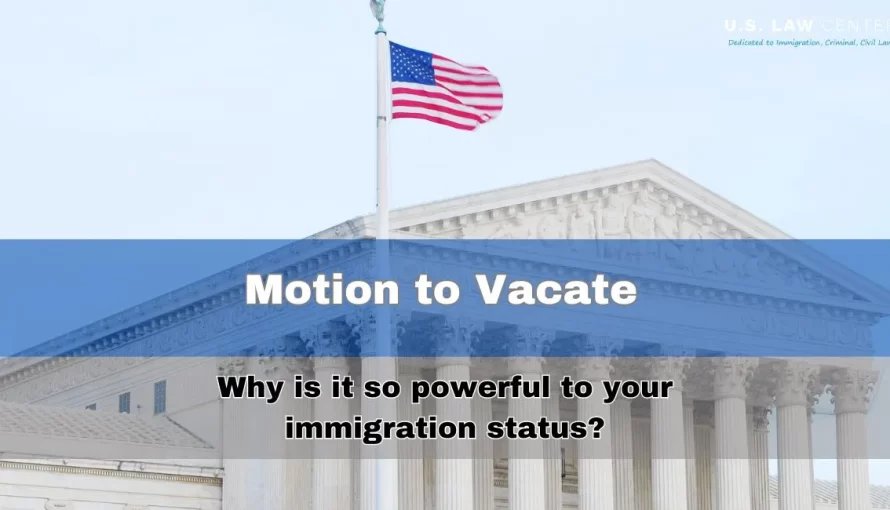A motion to vacate is a legal request aimed at overturning a court’s previous ruling. This powerful tool allows individuals to challenge a decision they believe is unjust or improperly made. It can be crucial in correcting legal errors or securing a fair hearing. Understanding what does motion to vacate mean is essential for navigating the complexities of the legal system. Legal professionals and individuals alike can benefit from grasping the significance and implications of this legal remedy.
Understanding Motion to Vacate in Legal Terms
What Does Motion to Vacate Mean?
Have you ever heard the term “motion to vacate” during a court drama on TV or in a movie? It might sound like a fancy legal term, but in simpler words, a motion to vacate is like asking a court to cancel or void a decision it made. Imagine you’re playing a game, and you realize the rules were unfair. You would want to change those rules, right? Well, that’s kind of what a motion to vacate does in the legal world.
When Can You File a Motion to Vacate?
Now, you might be wondering when someone can actually file a motion to vacate. It’s not something you can just do anytime you feel like it. There are specific situations where this motion can be used. Let’s explore a few of them:
1. Newly Discovered Evidence
Imagine you were in a game of hide and seek, and just when you thought you lost, you found a secret hiding spot that changes everything. Similarly, in legal cases, if new evidence comes to light after a court decision that could have changed the outcome, you might file a motion to vacate.
2. Fraud or Misconduct
Have you ever played a game where someone cheated, and you wanted to start over? In legal terms, if someone played unfairly during the court proceedings, like hiding important information or lying, that could be a reason to file a motion to vacate.
How Does the Process Work?
Alright, let’s dive into how this whole motion to vacate process actually works. It’s like following a recipe or a set of rules. First, you need to fill out some paperwork to ask the court to consider your request. Just like you need to explain why you think the decision should be changed in the game’s rules, in legal terms, you need to provide a good reason for why the court should vacate its decision.
1. Filing the Motion
Once you fill out the paperwork, you submit it to the court. It’s like handing in your request to the game referee. You have to make sure you follow all the court’s rules and procedures when filing the motion.
2. Court Review
After you file the motion, the court will review it. They will look at the reasons you provided and decide whether to hold a hearing. It’s like when the referee in a game reviews a play to see if the call was right or if there was a mistake.
What Happens After Filing a Motion to Vacate?
Once you file a motion to vacate, the legal process starts moving. It’s like setting things in motion, just like a rolling ball in a game that can change the game’s direction. Here’s what could happen next:
1. Hearing
If the court decides to hold a hearing, it’s like gathering all the players to discuss the game’s rules. During the hearing, both sides get a chance to present their arguments, just like in a debate.
2. Court Decision
After the hearing, the court will make a decision on whether to vacate the previous ruling or not. It’s like when the game referee makes a call based on the rules and arguments presented.
So, there you have it – a closer look at what a motion to vacate means in legal terms. Just like in a game, where you can challenge the rules if they seem unfair, the legal system allows for a process to question decisions that may have been made unfairly or based on incomplete information. Remember, the legal world can be complex, but understanding basic concepts like a motion to vacate can help demystify some of its processes.
Successful Motion to Vacate a Decision/Judgment
Frequently Asked Questions
What is a motion to vacate and when is it typically filed?
A motion to vacate is a legal request made to a court asking for the cancellation or voiding of a previously entered judgment or order. This motion is usually filed after a judgment has been issued, but there are valid reasons to challenge it, such as newly discovered evidence or errors in the original judgment.
Can anyone file a motion to vacate?
In general, yes. Any party to a legal proceeding or their legal representative can file a motion to vacate. However, the reasons for filing the motion must be valid and the proper legal procedures must be followed.
What are the common grounds for filing a motion to vacate?
Common grounds for filing a motion to vacate include newly discovered evidence that could change the outcome of the case, fraud or misconduct by one of the parties, errors in the legal proceedings, or if the judgment or order is contrary to the law or public policy.
How is a motion to vacate different from an appeal?
A motion to vacate is typically filed with the same court that issued the original judgment or order, and it seeks to have that judgment overturned. On the other hand, an appeal involves taking the case to a higher court for review of the lower court’s decision. Additionally, a motion to vacate is usually based on specific legal grounds, while an appeal can consider a broader range of issues.
Final Thoughts
In conclusion, a motion to vacate is a legal request made by a party to set aside a court’s previous decision. It is typically based on newly discovered evidence, legal errors, or misconduct by the opposing party. By filing a motion to vacate, a party seeks to overturn the court’s ruling and potentially receive a new trial or outcome. Understanding what a motion to vacate means is crucial for individuals navigating the legal system.






